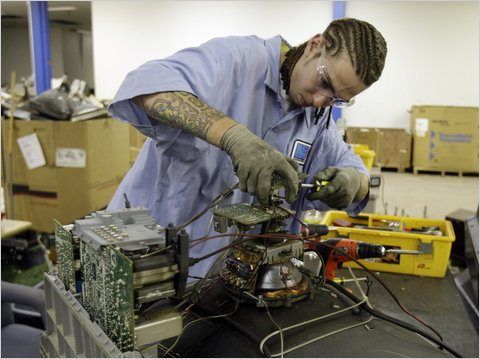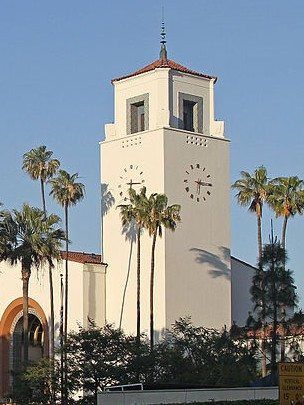

 Allowing a governor to make additional cuts to a final state budget is a fairly new development in California and governors have taken to it with verve. For the rest of the state, however, the response is, generally, “What? I thought the whole thing was over!”
Allowing a governor to make additional cuts to a final state budget is a fairly new development in California and governors have taken to it with verve. For the rest of the state, however, the response is, generally, “What? I thought the whole thing was over!”
These codas are not, however, unusual. Over the centuries, in several venues, end-of-the-piece additions have caused audiences who had already breathed a sigh of contented (or not) relief, believing a work to be beautifully, or thankfully, over, to snap to attention at the start-up of one more reprise, act, movement or chapter.
Beethoven’s Symphony No. 6 in F Major, sometimes known as the Pastoral Symphony, for example, is one of those pieces that jolts the unwary applauder in the audience by going on for five, instead of the usual four, movements. It’s embarrassing to burst into applause only to find out there’s a coda and you’re making noise all alone.
» Read more about: State Budget: It Ain't Over Till It's Over »


 I got my start in politics helping poor Mississippi sharecroppers register to vote. In those days even walking up the steps of the nearest town hall and asking to register could be answered with insults, threats of violence or worse. The required poll tax and quiz on the Constitution were designed to intimidate poor people and keep them off the voting rolls.
I got my start in politics helping poor Mississippi sharecroppers register to vote. In those days even walking up the steps of the nearest town hall and asking to register could be answered with insults, threats of violence or worse. The required poll tax and quiz on the Constitution were designed to intimidate poor people and keep them off the voting rolls.
That was a fight we won, right? Not exactly. In 2011, more than 30 states introduced legislation to once again restrict the access of regular people to the voting process. Some of these new laws’ promoters are trying to limit registration through strict voter ID requirements including possession of a government picture ID or proof of citizenship. Others aim to shorten the days and times for voting or impose strict restrictions on community organizations from registering new voters. These new laws can heavily impact both senior citizens, whose birth certificates can be hard to access and who can’t afford the cost or travel involved to attain certain documents,
» Read more about: Voter Suppression: One Man, One Picture ID? »


 Warehouse workers will embark Thursday, September 13, on a 50-mile protest march. Warehouse Workers United says the objective is “to urge Walmart to eliminate illegal and inhumane working conditions in its contracted warehouses in Southern California.”
Warehouse workers will embark Thursday, September 13, on a 50-mile protest march. Warehouse Workers United says the objective is “to urge Walmart to eliminate illegal and inhumane working conditions in its contracted warehouses in Southern California.”
The pilgrimage will take workers from Riverside to Los Angeles. Along the way they’ll be sleeping on church floors and relying on community organizations for support and meals.
The marchers will be joined daily by supporters and elected officials. Here is the march’s route map. Follow it on social media using the hashtag #WalMarch.
» Read more about: WalMarch: Warehouse Workers to March for Safe Jobs »


 (Note: The following catalog of cultural resources comes from World Wide Work and is published by the American Labor Education Center. Its authors say: “Please share this bulletin with others and encourage them to subscribe for free to World Wide Work, which they can do by going to TheWorkSite.org, [which] provides free, downloadable and adaptable materials for grassroots organizing and education. There is no cost for subscribing to the bulletin, and we never share our email list with anyone.”)
(Note: The following catalog of cultural resources comes from World Wide Work and is published by the American Labor Education Center. Its authors say: “Please share this bulletin with others and encourage them to subscribe for free to World Wide Work, which they can do by going to TheWorkSite.org, [which] provides free, downloadable and adaptable materials for grassroots organizing and education. There is no cost for subscribing to the bulletin, and we never share our email list with anyone.”)
New and worth noting…
BOOKS
The Evening Hour by Carter Sickels (Bloomsbury). This exceptional novel focuses on a young nursing home worker whose Appalachian homeland is being ravaged by coal companies. The characters are intriguing and complex, and the story is fresh and generally free of clichés.
» Read more about: Books, Films and Music: A Cultural Tool Box »


(Note: This post first appeared September 5 on Huffington Post and is republished with permission.)
You wouldn’t think that green jobs and gangs in America have much in common. But that’s before you realize that one has the power to positively change the other.
As the political rhetoric heated up last week in Tampa, many listened to hear how Mitt Romney will address the economic concerns felt by many Americans. For the past year, clashes between the one percent and those left behind have shed a new light on wealth disparity in our country. At a time when we’re expected to hit a record 66 million people living at or below the federal poverty line, our political leaders must support bold, innovative solutions that address the varied sources of poverty in our country.
The notion of job creation as a solution to [poverty] is nothing new.


 When my wife Susan and I walk down our neighborhood’s sidewalks, we often face the specter of some much younger person so focused on their cell phone, they almost run into us. Of course, we are old, so invisible. But usually they are oblivious to us because they are texting, and we avoid collisions with our fellow pedestrians because we step out of the way or interrupt these people’s concentration with a cheery “Hello.”
When my wife Susan and I walk down our neighborhood’s sidewalks, we often face the specter of some much younger person so focused on their cell phone, they almost run into us. Of course, we are old, so invisible. But usually they are oblivious to us because they are texting, and we avoid collisions with our fellow pedestrians because we step out of the way or interrupt these people’s concentration with a cheery “Hello.”
Nevertheless, it was still shocking to see that the same week Time magazine used several pages to map out our compulsive use of technological tools, The Week popped the question: Are we addicted? The answer, apparently, isYes we are.
Some 29 percent of Americans say their mobile devices are the first thing they look at in the morning and the last at night. And 68 percent acknowledge that it goes by the bed every night.
» Read more about: No Man Is an iPhone: In Search of the Wild Country »


(Editor’s Note: Thanks to the strong advocacy of the Natural Resources Defense Council and others in the RePower LA coalition, the Los Angeles Department of Water and Power has taken important steps towards becoming the greener, more efficient utility that will power the region through the next century. Earlier this summer, the LADWP Board more than doubled its investment in energy efficiency, and it recently followed that by embracing strong principles to guide future policy.)
On August 7, LADWP adopted guiding principles for the development and implementation of its energy efficiency portfolio.
The resolution commits LADWP to “aggressively promote and achieve energy efficiency across all customer segments and energy end uses as a key part of LADWP’s long-term, supply-side energy procurement strategy.”
What does this mean?
» Read more about: LADWP Doubles Down on Clean, Cheap, Local Energy »


The week’s wackiest quote, hands down, belonged to Congresswoman Yvette Clarke (D-Brooklyn), who told political comedian Stephen Colbert that blacks in her district were Dutch slaves at the time Brooklyn joined New York City in 1898. Then there was Australia’s Gina Rinehart, the planet’s richest woman, who was at it again speaking power to truth: While Rinehart is estimated to “earn” US$625 per second, she called on her country’s miners to take a pay cut. Read and weep!


There is little disagreement that consumer spending is a critical driver of American economic growth. The recession that began in 2007, while precipitated by the meltdown in the financial sector, is at root a crisis of aggregate demand. The halting recovery has been punctuated by disappointing monthly job reports and—just as important—by gloomy predictions from the Conference Board’s monthly survey of consumer confidence. Even business surveys admit (here and here) that anemic consumer demand (not “job-killing regulations”) is holding back new job creation and economic recovery.
Yet, despite worries about sagging consumer confidence and shrinking paychecks, business leaders seem unconcerned about the declining standard of living of middle-class America, or about the growing number of American families slipping into poverty. Over the last generation, wages for middle-class workers haven’t budged, while compensation for corporate executives and owners is reaching stratospheric levels.


On August 29, 2012, one of the most important job creation and environmental bills in recent memory was adopted by the legislature and sent to the governor. Senate Bill 1156 was developed and introduced by Senate President pro tem Darrell Steinberg and supported by a strong majority in both houses. Steinberg built quiet momentum behind the bill starting last February, in partnership with a broad-based coalition of community, environmental, labor, smart-growth and good-government activists, with support from the counties, infill developers, non-profit housing developers and business.
Indeed, despite the fact that the new legislation builds on the mostly eradicated foundation of the old redevelopment scheme (see background here), the bill attracted surprisingly little opposition. The Howard Jarvis Taxpayers Association and the anti-union Alliance of Building Contractors (ABC) were its only formal opponents.
While SB 1156 is a comprehensive, “big picture” bill,
» Read more about: Sustainable Communities Bills Sent to Governor Brown »